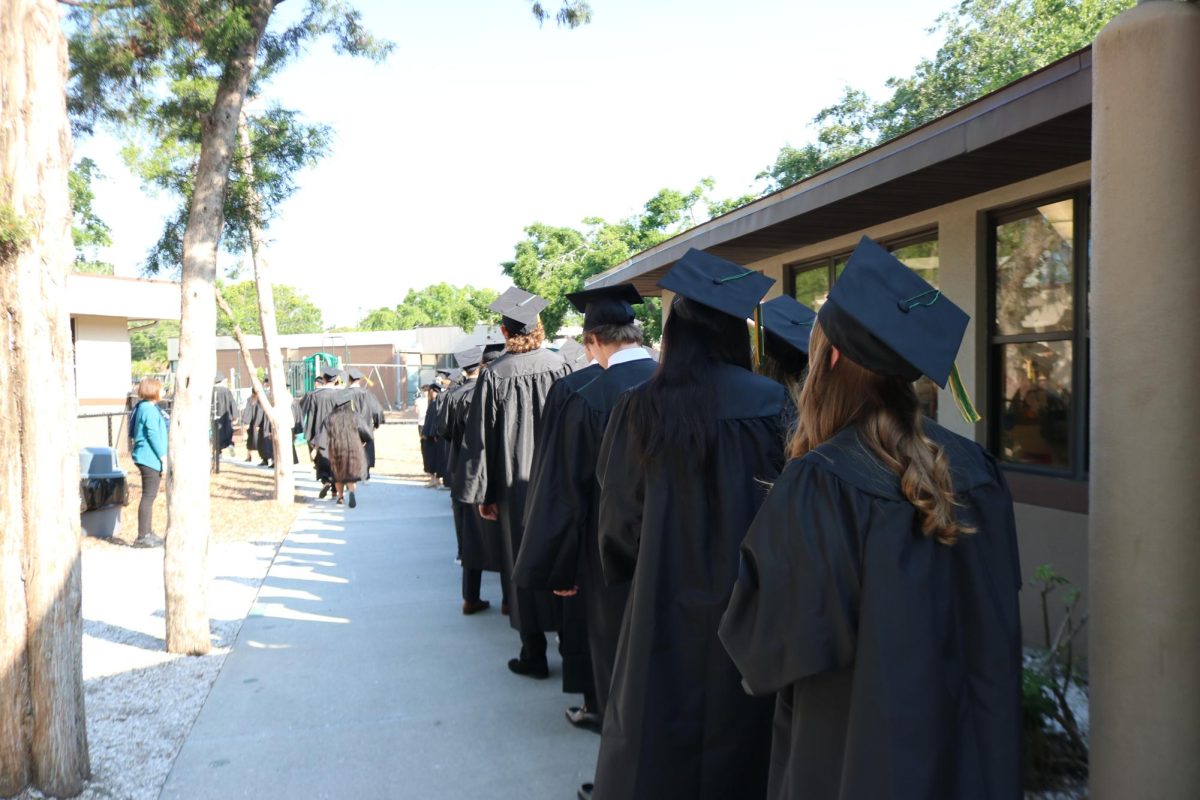To AP or not to AP? That is the question
The pressure to enroll in advanced placement classes can seem stifling, but maybe that shouldn’t be the norm. Is taking AP classes really the best indicator of success?
AP classes: they prepare students for college, provide a substantial GPA boost, look good on transcripts, and maybe even get students out of some college classes. What’s not to love?
In theory, AP classes provide a great opportunity for students, but in practice, they can be tricky. While it may seem like taking the hardest classes possible is the only way to be seen as a diligent and intelligent student, that may not actually be the case.
Often, the problem lies not in the classes themselves, but in the number of these classes that students decide to take. The highest amount of advanced placement classes Saint Stephen’s juniors are supposed to take is two, and for seniors, that number rises to three. If a student wants to exceed those limits, they will have to talk with administrators and prove that they are prepared for the challenge.
If there’s one thing advanced placement classes have a reputation for, it’s hard, grueling work. And in today’s competitive college app environment there is a great deal of pressure being put on high school students to enroll in them. But should AP classes determine whether a student is considered conventionally “successful”? Is taking them really necessary, or should the average student steer clear from putting themselves through the workload (and stress) they come with?
Advanced placement classes have become the norm for most students, as most of Saint Stephen’s students are enrolled in one or more of them. However, the risk posed by taking an AP class may not be worth the reward.
Mr. Moore, chair of the English department, is well-versed in the world of AP classes, and has taught three different types of advanced placement courses during his Saint Stephen’s career. When asked if he ever encountered a student who wasn’t ready for the rigor of an AP course, he said no, but added “I sometimes encounter students who take a course because its AP rather than because it’s something they’re interested in, and then they’re less willing to put in the work. They have the ability to [succeed in the class] but they don’t necessarily put forth the effort because it’s not something that interests them”
In his opinion, it’s not that these classes are too difficult for students, it’s that students who take them for the AP credit alone don’t care enough to work as hard as they need to in order to succeed.
For students who are genuinely interested in learning about America’s history, APUSH (Advanced Placement U.S. History) has the potential to be a challenging yet rewarding class. However, for students who simply want another AP on their transcript or who are simply seeking that plus one GPA boost, it might not be the best choice. If one takes a harder class solely to look good, finding the dedication to set away time to work on its coursework will be difficult.
Willard Dix, the Associate Dean of Admission at Amherst College and a high school college counselor recognizes that it’s a difficult decision to make. On the one hand, he is aware of the way that advanced placement classes bolster one’s resume. In a piece in Forbes Magazine, he said, “The AP designation on a course listing has become shorthand for ‘most rigorous’ being offered. They routinely earn students points over the usual 4.0 GPA scale, and despite the fact that they’re not supposed to be used for college admission (they’re for ‘placement,’ after all) a good score on the AP exam enhances applicants’ admission profiles.” Check out his full piece here: Explore AP Courses’ Pros And Cons Before Signing Up.
However, like Mr. Moore, Dix stresses that the decision to take an AP class should rest on more than a resumé line. Many students, especially those attending rigorous college preparatory schools like Saint Stephen’s, tend to push themselves towards excellence, even at the cost of their mental health.
Willard suggests that students “should follow their instincts and opt for what serves them best at the time,” as well as look to their counselors and teachers for support and help with their decision-making process.
On the other hand, AP classes, while they do pose a great challenge, can be great opportunities, and deciding not to even try one’s hand at them because they seem “too hard” might not be the best move. Instead, focus on areas of interest when choosing your path.
A common saying any student who has gone through the AP World History application process would be all too familiar with is— “Are you allergic to B’s? If so, you shouldn’t take this class.”
One anonymous AP World student admitted to “struggling a lot with the class.” They said that no matter how hard they tried, attempts at getting that A on their transcript proved to be futile.
Now, there are always those few aggravating people who seem to get all A’s even in AP’s while putting forth little effort, but for the majority of students, a B in AP world reflects hours of hard work and dedication.
It’s no secret that AP classes are hard, and for some students, they may not be the best fit. These courses are by no means the only standard of success for high school students to live up to, and nobody should feel pressured into taking one.
However, for those students who are genuinely interested in an area of study that an advanced placement class covers, why not take it? The GPA boost certainly can’t hurt.

Caroline is a Senior at Saint Stephen's and is returning for her third year on The Gauntlet. This year, she is taking on the position of Editor in Chief....














































